Reducing Inflammation with nutrition: 5 Ways the Paleo Diet Can Help You
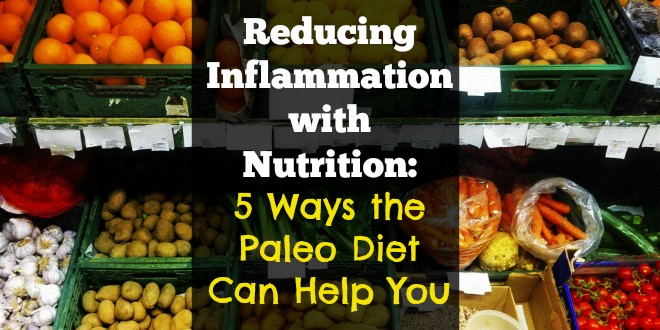
Inflammation is a natural biochemical process in the body that occurs to help heal a particular area. Think of a superficial cut, the area gets red and inflamed as blood flow increases to the area. Inflammation helps repair tissue and is normal except when it becomes a chronic immune response. Scientists believe that chronic low-grade inflammation is the leading cause of various chronic ailments such as arthritis, diabetes and heart disease as well as digestive disorders.
There are various factors that lead to this condition, this includes stress, poor sleep, environmental toxins as well as being overweight. All of these factors are quite common in today's world. But poor nutrition can be an added stressor as nutrient deficient foods often contain pro inflammatory compounds.
[caption id="attachment_15566" align="aligncenter" width="895"]
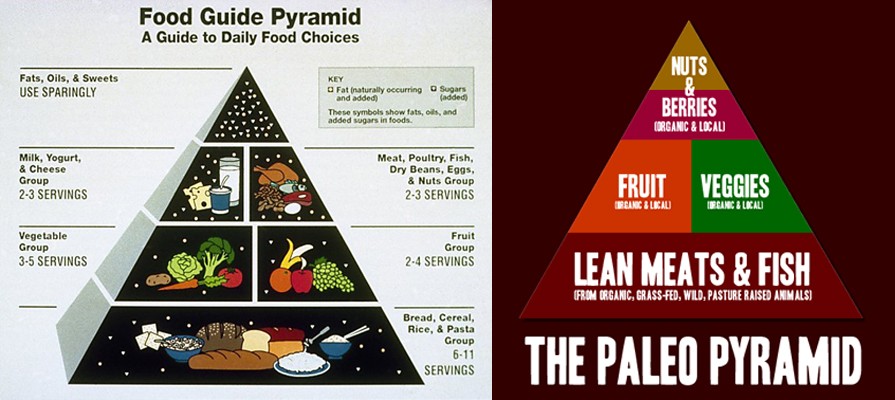 On the left we have the original 1992 USDA Food Pyramid vs the Paleo Pyramid on the right[/caption]
On the left we have the original 1992 USDA Food Pyramid vs the Paleo Pyramid on the right[/caption]In my practice I see many clients with poor dietary habits. It's time to get off the processed foods and adopt a sensible way of eating whole foods. The Paleo approach is the foundation of my practice. This is because it is a whole foods based approach to nutrition that doesn't rely on powders or pills but simply high quality whole foods, primarily lean meats, fish, fruits, vegetables, nuts, seeds and good fats.
5 Ways the Paleo Diet can help with Reducing Inflammation
1. Avoid Common Food Allergens
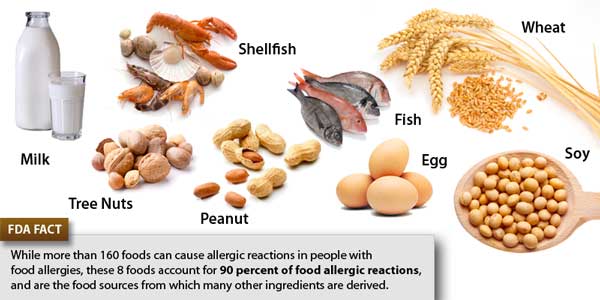
You don't need to have a true allergy to be affected by certain compounds in foods. Food intolerance for example can have a delayed onset and can cause a whole host of problems including irritability, digestive upset, migraine headaches and inflammation. Common food allergens include soy (one of the most genetically modified crops), dairy, gluten and corn. These days, almost all conventional processed foods will contain at least one of these allergens. Be a label detective, and be sure to look out for these allergens as they are often hidden in many foods.
2. Choose the Right Fats
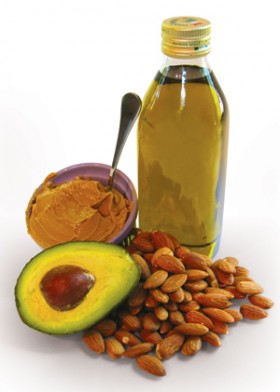 Eating rancid or highly refined fats and oils as found in most processed foods is one of the leading causes of inflammation. Most processed foods will contain some sort of refined vegetable oils high in omega 6 fatty acids. These oils include safflower, sunflower, soybean and corn. It is important to note that the omega 6 fatty acids are pro inflammatory-meaning that they cause inflammation when consumed in excess. It is simply best to avoid processed foods altogether and increase your intake of omega 3 fatty acids as these are anti-inflammatory fatty acids. Your best choices of omega 3's include cold water fish such as wild salmon as well as flax seeds.
Eating rancid or highly refined fats and oils as found in most processed foods is one of the leading causes of inflammation. Most processed foods will contain some sort of refined vegetable oils high in omega 6 fatty acids. These oils include safflower, sunflower, soybean and corn. It is important to note that the omega 6 fatty acids are pro inflammatory-meaning that they cause inflammation when consumed in excess. It is simply best to avoid processed foods altogether and increase your intake of omega 3 fatty acids as these are anti-inflammatory fatty acids. Your best choices of omega 3's include cold water fish such as wild salmon as well as flax seeds.
3. Increase your intake of Anti Inflammatory Foods
Plants contain compounds known as phytochemicals which are known to combat inflammation. Bromelain, a potent enzyme found in fresh pineapple is a strong anti-inflammatory, of course, be sure to eat the fruit raw to get the greatest potency. Other potent anti-inflammatory foods include brightly coloured fruits and vegetables such as Brussels sprouts, kale, berries, raspberries as well as red onion. Moreover, spices such as turmeric, cinnamon and ginger are also known to contain anti-inflammatory compounds. Be sure to include at least 6-10 servings of fresh fruits and vegetables every day.
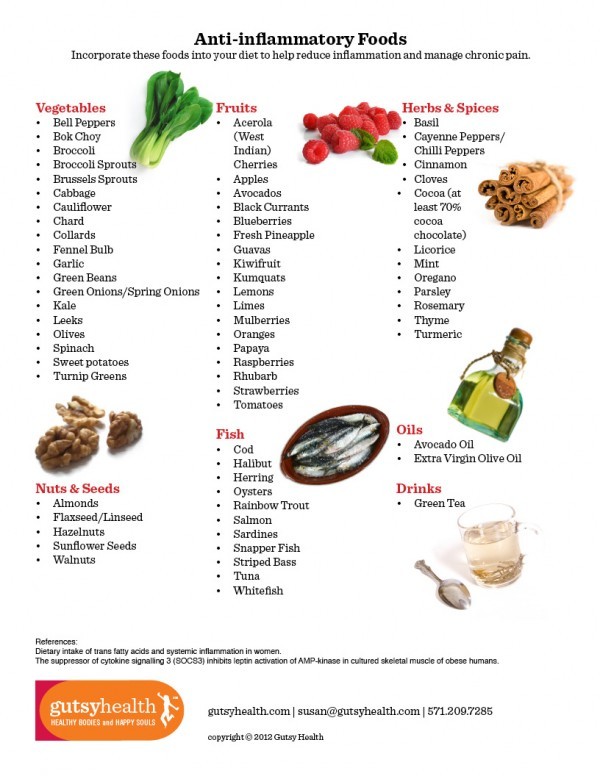
4. Choose High Quality Whole Foods
 Modern agriculture is great at providing high yields but not necessarily the most nutritious produce. Conventional produce often contain lots pesticides and herbicides. Epidemiological studies suggest that an increased exposure to these chemicals is hazardous to our health as it promotes inflammation. Choosing organic produce decreases your exposure to these substances. Moreover, the same is true for meats and fish, look for organic, wild or grass-fed as you can be sure you are reducing your exposure to toxins. I always encourage clients to visit their farmers market in their local communities as they can become more informed as to what they are feeding their families.
Modern agriculture is great at providing high yields but not necessarily the most nutritious produce. Conventional produce often contain lots pesticides and herbicides. Epidemiological studies suggest that an increased exposure to these chemicals is hazardous to our health as it promotes inflammation. Choosing organic produce decreases your exposure to these substances. Moreover, the same is true for meats and fish, look for organic, wild or grass-fed as you can be sure you are reducing your exposure to toxins. I always encourage clients to visit their farmers market in their local communities as they can become more informed as to what they are feeding their families.
5. Go Against the Grain
 Many of my clients consume an excessive amount of grains. Grains contain anti-nutrients known as phytates. Phytates or phytic acid binds to minerals which inhibit their absorption causing nutrient deficiencies. Maintaining a proper balance of minerals is so important. Did you know that a magnesium deficiency could cause neurological imbalances that cause anxiety and irritability? In addition grains and legumes also contain proteins called lectins. The problem with lectins is that they can cause intestinal inflammation in sensitive individuals as they irritate the gut lining much like gluten. When the intestinal walls are inflamed, our ability to absorb nutrients and assimilate them is hindered. Finally, I often see clients that are concerned about maintaining their fibre intake. The bottom line is that you can get much more fiber and micro-nutrients by eating fruits and vegetables and not "whole grains".
Many of my clients consume an excessive amount of grains. Grains contain anti-nutrients known as phytates. Phytates or phytic acid binds to minerals which inhibit their absorption causing nutrient deficiencies. Maintaining a proper balance of minerals is so important. Did you know that a magnesium deficiency could cause neurological imbalances that cause anxiety and irritability? In addition grains and legumes also contain proteins called lectins. The problem with lectins is that they can cause intestinal inflammation in sensitive individuals as they irritate the gut lining much like gluten. When the intestinal walls are inflamed, our ability to absorb nutrients and assimilate them is hindered. Finally, I often see clients that are concerned about maintaining their fibre intake. The bottom line is that you can get much more fiber and micro-nutrients by eating fruits and vegetables and not "whole grains".
[divider]
Author bio:
 Nidia Carriel Moreno is a Registered Holistic Nutritionist and founder of Nutrivida nutrition consulting. She currently practices out of the Bloor West Homeopathic and Wellness Clinic in Toronto's west end. To connect with Nidia or for more information on upcoming nutrition workshops please visit www.bloorwestwellness.com
or follow her on twitter @mynutrivida
Nidia Carriel Moreno is a Registered Holistic Nutritionist and founder of Nutrivida nutrition consulting. She currently practices out of the Bloor West Homeopathic and Wellness Clinic in Toronto's west end. To connect with Nidia or for more information on upcoming nutrition workshops please visit www.bloorwestwellness.com
or follow her on twitter @mynutrivida




































































































